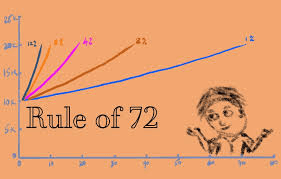Sep 21, 2024
Wealth Formula
Wealth Formula
Wealth Formula
To build wealth effectively, it is crucial to understand and apply the wealth formula, which consists of several key elements:
To build wealth effectively, it is crucial to understand and apply the wealth formula, which consists of several key elements:
To build wealth effectively, it is crucial to understand and apply the wealth formula, which consists of several key elements:
Resources




To build wealth effectively, it is crucial to understand and apply the wealth formula, which consists of several key elements:
(+) Money: Money is the primary ingredient for building wealth. It can come from various sources such as income, savings, or investments. However, money alone is insufficient to create wealth; it must be combined with other factors.
(+) Time: Building wealth requires patience and a long-term perspective. Wealth is not achieved overnight through get-rich-quick schemes. It takes time to accumulate wealth steadily. Even activities like playing the lottery rarely lead to instant wealth. Time is a vital component in the wealth-building process.
(+/-) Rate of return: The rate of return represents the growth or interest rate on your money. A positive rate of return is desirable when it comes to investments, as it signifies growth. Conversely, a negative rate of return applies to debts, where interest accumulates and can hinder wealth accumulation.
(-) Inflation: Inflation refers to the increase in prices of goods and services over time. It erodes the purchasing power of money. As a result, wealth must account for the negative impact of inflation, as the value of money decreases annually.
(-) Tax: Taxes are a reality in wealth building. They reduce the overall amount available for wealth accumulation. It is essential to understand tax regulations and employ strategies to minimize tax obligations legally.
By considering these elements within the wealth formula—money (+) time (+/-) rate of return (-) inflation and (-) tax—one can determine their wealth. It is important to note that wealth is subjective and varies from person to person. To build wealth successfully, it is crucial to acquire financial knowledge, increase cash flow, exercise patience, explore investment options with higher rates of return to combat inflation, and employ basic tax strategies. Defining what wealth means personally is also significant in this pursuit.
To build wealth effectively, it is crucial to understand and apply the wealth formula, which consists of several key elements:
(+) Money: Money is the primary ingredient for building wealth. It can come from various sources such as income, savings, or investments. However, money alone is insufficient to create wealth; it must be combined with other factors.
(+) Time: Building wealth requires patience and a long-term perspective. Wealth is not achieved overnight through get-rich-quick schemes. It takes time to accumulate wealth steadily. Even activities like playing the lottery rarely lead to instant wealth. Time is a vital component in the wealth-building process.
(+/-) Rate of return: The rate of return represents the growth or interest rate on your money. A positive rate of return is desirable when it comes to investments, as it signifies growth. Conversely, a negative rate of return applies to debts, where interest accumulates and can hinder wealth accumulation.
(-) Inflation: Inflation refers to the increase in prices of goods and services over time. It erodes the purchasing power of money. As a result, wealth must account for the negative impact of inflation, as the value of money decreases annually.
(-) Tax: Taxes are a reality in wealth building. They reduce the overall amount available for wealth accumulation. It is essential to understand tax regulations and employ strategies to minimize tax obligations legally.
By considering these elements within the wealth formula—money (+) time (+/-) rate of return (-) inflation and (-) tax—one can determine their wealth. It is important to note that wealth is subjective and varies from person to person. To build wealth successfully, it is crucial to acquire financial knowledge, increase cash flow, exercise patience, explore investment options with higher rates of return to combat inflation, and employ basic tax strategies. Defining what wealth means personally is also significant in this pursuit.




Financial Life Cycle
It’s crucial to recognize that saving and learning about investing should start earlier in life to avoid retiring without financial security.
Resources




Rule of 72
Being financially responsible involves putting practical financial wisdom into action. Some of these clichés include curbing spending, paying off debt, and saving early and consistently.
Resources
Unlock tailored financial strategies that drive success. Whether it's wealth management, tax planning, or investment advice, we’ve got you covered.
Resources
Unlock tailored financial strategies that drive success. Whether it's wealth management, tax planning, or investment advice, we’ve got you covered.
Resources
Unlock tailored financial strategies that drive success. Whether it's wealth management, tax planning, or investment advice, we’ve got you covered.
Resources